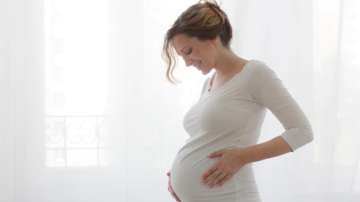Monkeypox spread has raised concern among health officials around the world. The World Health Organisation has also expressed concern as the recent monkeypox outbreak has spread to vulnerable people, including children, pregnant women and those with weak immune systems. While the virus did manifest earlier in children, this reportedly the first in the recent outbreak, now confirmed in more than 3,000 patients spread across over 50 countries that are both endemic and non-endemic to the infection.
The increasing trend of infections, majorly seen among men who have sex with men "is likely to continue", said WHO Director General Dr Tedros Adhanom Ghebreyesus, during a media briefing.
"We are starting to see this with several children already infected. I am concerned about sustained transmission because it would suggest that the virus is establishing itself and it could move into high-risk groups including children, the immunocompromised and pregnant women," Ghebreyesus said. The WHO added that it was investigating reports of infections in children under 18 in Spain and France, while two cases have been found in the UK since May.
Read: Monkeypox declared a pandemic by WHN: Ways to prevent yourself from viral infection and treatment
The WHO has recently stopped short of declaring the virus an international emergency, on the advice of the International Health Regulations (2005) Emergency Committee. While the global health body noted that the escalating monkeypox outbreak in more than 50 countries should be closely monitored, it said "at this stage" it does not warrant being declared a global health emergency.
"Overall, in the report, they (IHR Committee) advised me that at this moment the event does not constitute a Public Health Emergency of International Concern, which is the highest level of alert WHO can issue," Ghebreyesus said.
He added the cases are, however, "clearly an evolving health threat" that the WHO is following "extremely closely" and that if the situation further evolves, he would "reconvene the meeting quickly".
The WHO advised countries to increase surveillance by boosting testing as quickly as possible, assist public health agencies and health workers on the frontlines of this outbreak, and squash the stigma around the virus to help people protect themselves.
Read: Monkeypox: Semen, blood, breast milk and other sources of virus spread
It said it is also actively working with LGBTQI+ communities to reduce stigma.
The global health body also asked countries to provide equitable access to counter measures like vaccines and antivirals.
